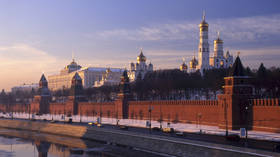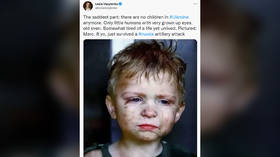Ukrainian proposal is not ‘a peace plan’ – Kremlin

No proposal that refuses to account for reality can pretend to aim for peace, the Kremlin spokesman Dmitry Peskov told reporters on Wednesday, responding to a question about Russia’s official position on a “peace plan” floated by the Ukrainian government.
"No plan that ignores that reality can pretend to have peace in mind," Peskov said.
Ukrainian President Vladimir Zelensky’s proposal, floated earlier this month, envisioned a UN-sponsored “Global Peace Summit” taking place in February 2023. According to Zelensky, the agenda would be based on his ten-point “peace formula,” which includes the withdrawal of Russian troops from all territories claimed by Ukraine, Moscow paying reparations, and holding war crimes trials for individuals that Kiev accuses of aggression.
Zelensky's Foreign Minister Dmitry Kuleba brought up the proposal anew on Monday, insisting that Russia must face judgment by an “international court” before being allowed at the table.
Moscow’s First Deputy Permanent Representative to the UN Dmitry Polyansky dismissed Kuleba’s statement as “nonsense,” commenting that there can be no peace talks without Russia, while the actions of Ukraine’s government may result in such a meeting eventually taking place without their participation.
Russian President Vladimir Putin has said Kiev must recognize the status of Donetsk, Lugansk, Kherson, and Zaporozhye as parts of Russia as a prerequisite for any peace talks. In addition to the four regions, Moscow seeks to “prevent the creation and continuation of any threats to our security from Ukrainian territory,” Foreign Minister Sergey Lavrov said in an interview on Wednesday.
Russia sent troops into Ukraine on February 24, citing Kiev’s failure to implement the Minsk agreements, designed to give the regions of Donetsk and Lugansk special status within the Ukrainian state. Former Ukrainian President Pyotr Poroshenko has since admitted that Kiev’s main goal was to use the 2014 ceasefire, brokered by Germany and France, to buy time and “create powerful armed forces.”
Moscow demands that Ukraine officially declare itself a neutral country that will never join any Western military bloc. Kiev insists the Russian offensive was completely unprovoked.













